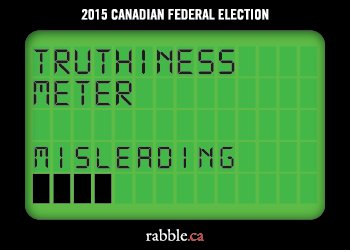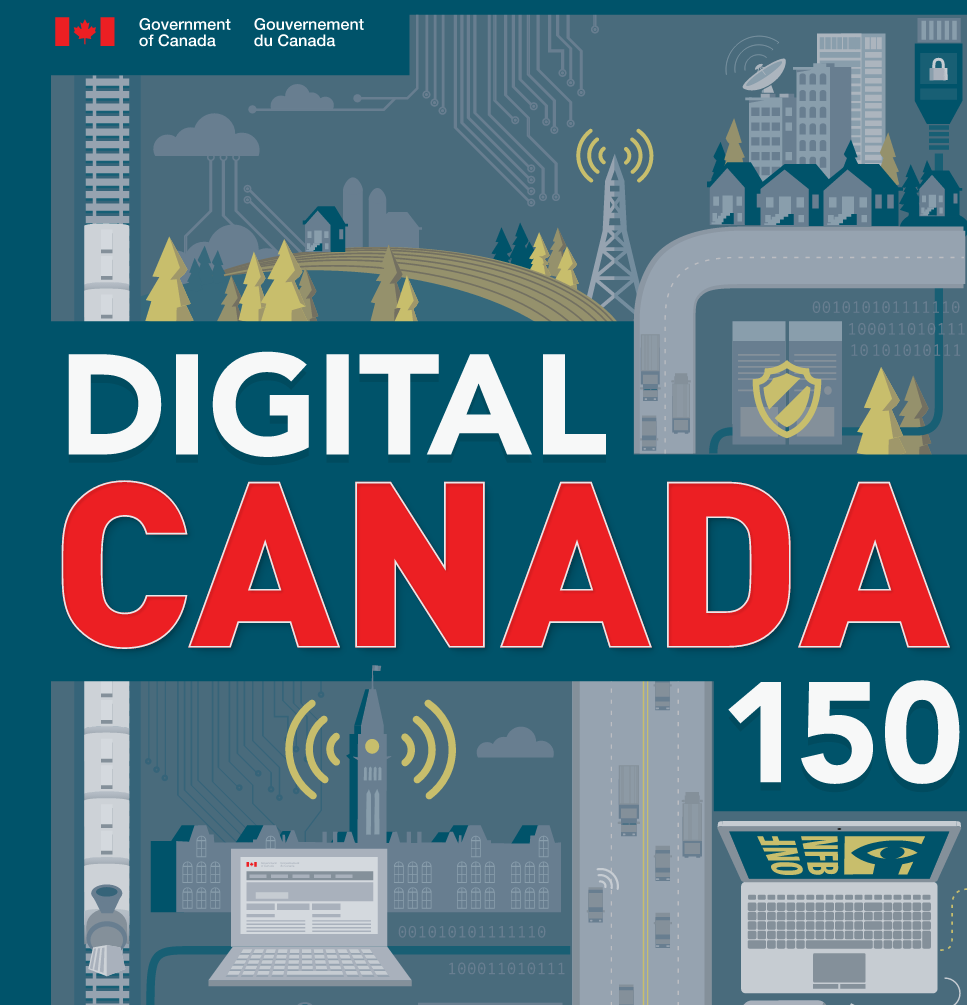Want to see an election campaign fact rich and spin poor? Chip in to keep our fact check blog up to date.
The 2015 federal election promises to be an ugly fight, with a lot of half-truths and fact twisting. This has been the tone set by the Harper government so far, and it shows no sign of changing course. Luckily, rabble.ca together with our allies will be pulling together real numbers and evidence to refute the mistruths and fact check the election campaign.
Stephen Harper has promised $200 million to improve broadband access to rural Canada, where 15 per cent of people still can’t access it. Just 62 per cent of Canadians in the lowest income quartile have access to broadband. Northern communities are even less connected. In Nunavut, only 27 per cent of communities have access.
The Conservative plan would start in 2017 and would disburse $28.5 million annually, for seven years thereafter. In 2014, $305 million was promised to bring broadband access to 280,000 homes by 2017 (increased to 350,000 homes due to the program’s success). Harper made the announcement in Lancaster, Ontario.
The 2014 promise was outlined in this: Digital Canada 150, in-depthly criticized by Vice at the time.
Harper has promised to expand broadband many times. In 2008, expanded broadband was part of the overall development strategy for Northern Canada, announced alongside strengthening Canada’s national defenses in the North and creating the conditions to improve the capacity for resource extraction.
In March 2009, Harper announced that they would pay private companies half of the cost of connecting remote regions to broadband access. In the 2009 budget the Conservatives promised to pay $225 million over three years to develop a strategy to expand broadband access, resulting in the Digital Canada 150 document.
Harper’s definition of high speed is well below what most Canadians would consider to be high speed. His election backgrounder lauds the 2014 strategy as delivering speeds of 1.5 Mbps to rural Canadians. Christopher Malmo at Vice criticizes the Conservatives’ 2014 digital strategy for being powerfully unambitious.
The Conservative’s election announcement promises “high-speed” connections of 5 Mbps to rural households, the same as the 2014 target. On average, Canadian cities offer 25-50 Mbps connections. Google Fiber has offered a few lucky cities 1,000 Mbps connections since 2011.
Although the plan promises higher speeds to “community backbones” like schools, hospitals or community centres, this promise falls way short of Open Media’s digital platform: “Encourage the CRTC to ensure 100 per cent of Canadians have access to a range of world-class, affordable Internet services at speeds on par with our international counterparts (at least 25 Mbps download and 3 Mbps upload).”
And, telecom companies who are contracted to expand these networks stand to receive up to 75 per cent of the costs covered by the government.
Access to Internet is important, but so too is protecting Canadians’ privacy. With the passage of bill C-51 and the expansion to Canada’s spy agency, Canadians should take this news with a grain of salt: the Conservatives have hardly been friends to an accessible, open Internet.
Also, sidenote about the announcement location: In 2004, Bell, in partnership with the Government of Ontario announced that they would invest $2.8 million to bring high-speed Internet to Lancaster and surrounding areas. It was one of the last regions that benefitted from the Mike Harris-era program, before it was cancelled.
Lancaster: land of perennially slow Internet, or political playground for Conservatives?
Verdict:

Want to see an election campaign fact rich and spin poor? Chip in to keep our fact check blog up to date.



